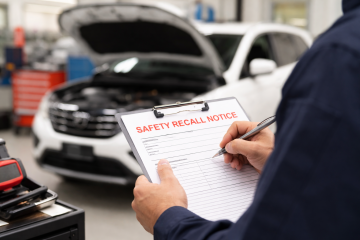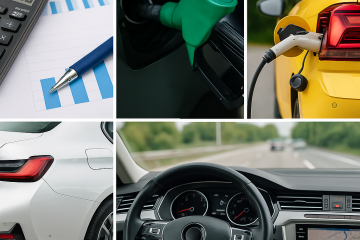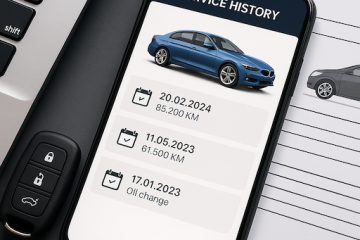Market Insight: Lean & Mean

As we kick off 2025, One Auto API CEO Mark Fretwell explores how the automotive sector can get into top shape to tackle a fresh mix of challenges and opportunities.
So here we are. Another year begins.
A year where the Zero Emission Vehicle (ZEV) mandate remains a key driver of change, operational cost pressures weigh heavily on dealers and consumer confidence continues to shape market dynamics.
As always, it’s sure to be a year that brings challenge and opportunity.
The automotive sector has shown time and again that it is resilient and adaptable, able to find innovative ways to meet shifting demands. This year will be no different.
Businesses that rethink strategies, leverage technology and seize new avenues for growth will thrive.
ZEV Mandates: Compliance or Consequences?
The ZEV mandate continues to dominate discussions, pushing manufacturers to ramp up electric vehicle (EV) sales in line with increasingly stringent targets.
Preliminary data for 2024 shows that battery electric vehicles (BEVs) accounted for 19.6% of new car registrations – falling short of the 22% target set by the Government. However, the Department for Transport (DfT) has indicated that no fines will be issued, thanks to mitigation measures such as credit trading, pooling and CO2 offsets.
While these flexibilities have allowed manufacturers to avoid immediate penalties, they raise interesting questions about the sustainability of such strategies. Are manufacturers simply storing up bigger problems for the future, hoping for a shift in policy?
Trade associations like the Society of Motor Manufacturers and Traders (SMMT) are lobbying for regulatory adjustments as part of the ZEV Mandate Consultation but the pressure to meet ambitious targets remains steadfast.
Adding to this complexity is the growing presence of state-subsidised Chinese EV manufacturers in the UK market.
These entrants, benefiting from lower production costs and government support, are steadily expanding their foothold. While many of these vehicles don’t necessarily compete in the premium market, their affordability and reliability will certainly appeal to a broad segment of UK car buyers.
In a recent media announcement, Mike Hawes, CEO of the SMMT, points to additional headwinds facing manufacturers, most notably the declining interest from private buyers.
Historically accounting for half of new car demand, private buyers are increasingly hesitant due to high BEV prices, economic pressures and inconsistent messaging about the petrol and diesel phase-out deadline.
As the UK government pushes for a transition to zero-emission vehicles, achieving these ambitious goals will require more than flexibilities and mitigation measures.
Clear, consistent policy direction and targeted incentives are essential to ensure sustained growth and long-term compliance.
For manufacturers and policymakers alike, the stakes couldn’t be higher.
Used Car Market: A Resilient Segment
Despite the challenges across the broader automotive market, the used car sector demonstrated encouraging resilience in the final weeks of 2024.
Healthy demand in December exceeded expectations, particularly after a sluggish November – a month likely impacted by consumer caution following the Autumn Budget.
As we move into 2025, activity levels on the One Auto API platform suggest that strong demand for used vehicles is set to continue through January. This momentum should give retailers the confidence to stock up in their preferred market segments.
One certainty for the coming 12 months is the growing influx of used EVs entering the market. As these vehicles become more affordable, they have the potential to attract a wider audience, including buyers who may not have previously considered an EV.
For dealers, this shift presents an opportunity to diversify inventory and cater to evolving consumer preferences. Those who have been hesitant to stock used EVs will find this year an ideal time to explore the segment.
Maintaining this momentum, however, will require thoughtful strategy.
Dealers must prioritise maintaining consumer confidence and enthusiasm, even as economic and regulatory pressures persist. A strong web-presence, and sales team able to educate and set realistic expectations will continue to be essential in converting potential buyers.
Cost Pressures Demand Operational Efficiency
Rising costs, particularly from increased employer National Insurance contributions, are adding financial strain for dealers in 2025.
At the close of 2024 we saw reports of long-established dealerships closing their doors and, already this year, reports of reduced profitability are surfacing – clear signs that the industry is under pressure.
When facing such challenges, businesses often turn to payroll adjustments to manage costs. While this can alleviate immediate financial strain, success depends on leveraging technology and optimising processes to do more with less.
For example, cleansing data before marketing campaigns can significantly reduce unnecessary outreach, improving engagement rates and enabling teams to focus on high-value opportunities.
Automation tools for lead handling can further enhance efficiency, freeing up resources to prioritise customer retention and acquisition.
However, meaningful change doesn’t happen overnight. Adjusting business processes and implementing new technologies requires time and careful planning.
Dealerships need to be proactive, with a clear understanding of how and when to adapt their systems.
Simplifying tech landscapes, often a challenge for businesses, can unlock significant efficiencies. Streamlining systems and integrating tools more effectively will pave the way for growth.
Conclusion: Adaptation is Key
The road ahead is complex, but the automotive sector has shown time and again that it can adapt to adversity.
Whether it’s navigating regulatory challenges, addressing cost pressures or capitalising on opportunities within the EV transition, success in 2025 will hinge on transformation and innovation.
This year will test the resilience of our industry, but it also offers tremendous opportunity.
Businesses that focus on optimisation, embrace innovation and streamline their operations will undoubtedly emerge stronger.
Here to Help
At One Auto API, we’re committed to helping our partners navigate the challenges and opportunities of 2025. From data-driven insights to process optimisation, our tools and expertise are designed to empower your business to thrive in a changing world. Book a free 30-minute consultation today to explore how we can support your success.


